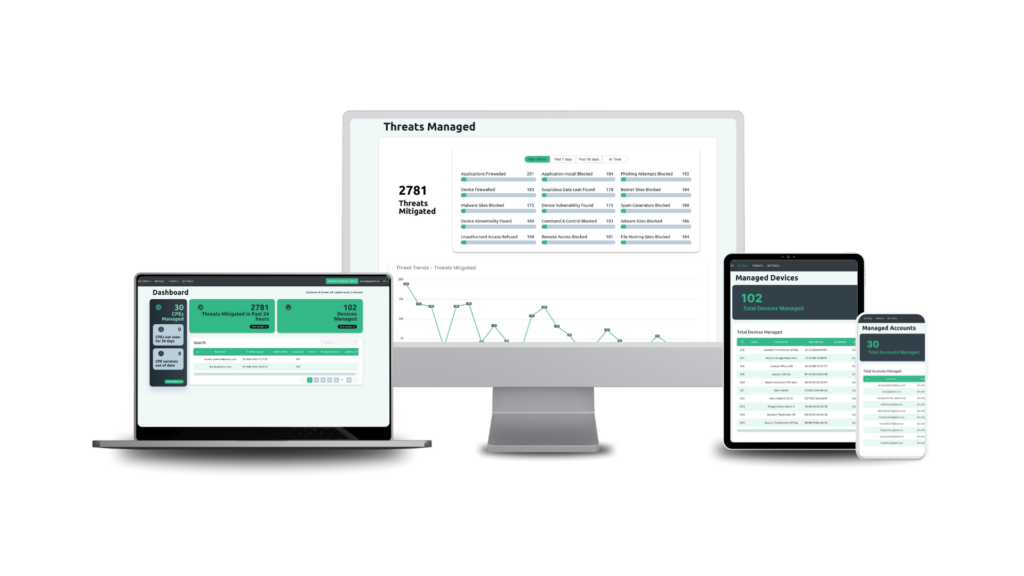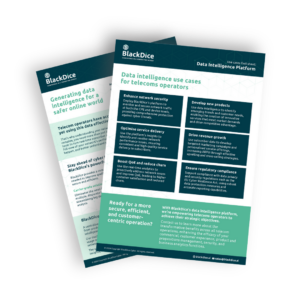Published September 20, 2024
Read Time Mins

Unlocking the power of data intelligence for telcos
Telecom operators manage an enormous amount of network data every day. From subscriber usage patterns to traffic spikes and anomalies, this data has the potential to give valuable insights into network performance, customer behaviour, and security risks. Yet, many telcos struggle to make the most of it.
Data intelligence, powered by AI and machine learning, can transform how telcos approach their networks. By turning raw data into actionable insights, these tools can improve network operations and make a significant impact on cybersecurity. In this article, we explore how telcos can use data intelligence to strengthen their operations, enhance security, and deliver a better service to their subscribers.
Data intelligence is the process of collecting, analysing, and using data to make informed decisions. For telecoms, this can mean better visibility into network performance, subscriber behaviour, and security threats. “When used effectively, data intelligence helps telcos optimise their networks, predict issues before they happen, and improve the overall quality of service,” says Mark Mullings, Chief Growth Officer at BlackDice. “It’s not just about managing data, it’s about using it to create real value.”
As cyber threats become more advanced, traditional security methods are falling behind. For telcos, managing vast and complex networks makes this challenge even greater. Networks are gateways to sensitive information, making them high-value targets for cybercriminals.
AI and machine learning can help tackle this by enhancing cybersecurity efforts. These technologies can analyse massive datasets in real-time, identifying unusual activity and potential threats before they escalate. Instead of relying solely on known threat signatures, machine learning can spot patterns and behaviours that signal new or emerging risks.
Machine learning is increasingly essential for telcos that want to stay ahead of cyber threats. Traditional cybersecurity approaches rely on recognising known threats, which is a reactive approach. Machine learning allows telcos to be proactive. By continuously analysing network activity, it can flag anomalies and alert operators to potential risks, even if they don’t match any known threat patterns.
“The ability to learn from new data and adapt over time means that machine learning is especially valuable in an environment where cyber threats are constantly evolving. For telcos, this shift from reactive to proactive security is crucial for protecting their networks and the sensitive information they handle.”
To unlock the full potential of data intelligence and AI-driven cybersecurity, telcos need platforms that can manage large-scale network data. These systems should provide real-time insights into network activity, integrate analytics and predictive tools, and allow teams to monitor network performance and security from a centralised dashboard.
While some telcos may opt to build these systems internally, many are choosing to partner with specialist providers who offer scalable data intelligence and cybersecurity platforms. These partnerships allow telcos to benefit from the latest technology without needing to develop complex systems in-house.

As the telecoms industry continues to evolve, data intelligence will play an increasingly important role. Whether it’s improving network performance or staying ahead of cybersecurity threats, the ability to turn data into actionable insights will be critical for success. Understanding how AI and machine learning can enhance network operations and security is key.
“The future of telecoms will be defined by how well telcos can harness the power of their data—and those that can do so effectively will gain a significant edge.”

If you’re looking to dive deeper into how data intelligence can transform your network operations and cybersecurity, our Data Intelligence Factsheet offers a comprehensive overview. Discover how AI and machine learning can provide actionable insights, improve network performance, and safeguard against evolving cyber threats.
📥 Download the factsheet here: Data Intelligence Factsheet